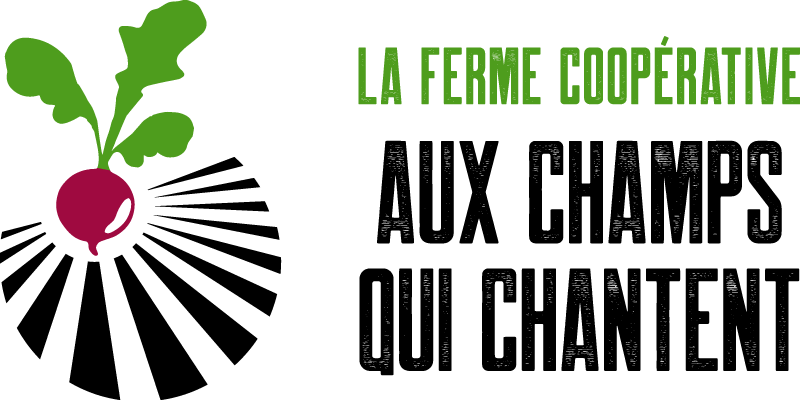Basket Contents: Choice of leeks or beets, tomatoes, cherry tomatoes, edamame, choice of basil or cilantro, lettuce, choice of eggplant or arugula, peppers, pumpkin, garlic scapes
Recipe of the week: Grandma Maxine’s Pumpkin Soup
Well, it finally happened: hard frosts! Meteorologists say that autumn officially begins on Sept 22nd, when the Equator is exactly aligned with the Sun, but we disagree. For us, autumn always arrives with the first hard frost. We got our first hard frost last Monday night. It was announced long in advance, so luckily we had time to prepare, as much as possible, by bringing in or covering some of the most frost-sensitive crops, and mentally preparing to lose the rest. So sorry to say, but this is the end of basil season, my friends.
This week we’d like to share some thoughts about farm work, and the huge privilege of working in a cooperative. When Heather’s not farming, she plays trombone with an activist marching band (as some of you may remember from last year’s harvest party!). Last week the band went down to St-Rémi to play for some of the more than 2000 migrant agricultural workers in the area. Each year this gig provides a stunning reminder to what extent the Quebecois food system depends on this massive work-force, which gets very little acknowledgement or respect in the public sphere. The federal Seasonal Agricultural Workers Program (SAWP) was created as industrial agriculture started replacing smaller-scale diversified farms to recruit seasonal workers to do work that few Canadians are willing to do, yet all rely so heavily upon.
In speaking with the organizers of the Migrant Workers’ Center in St-Rémi, the many challenges in obtaining fair working conditions for these workers were highlighted. The employers hold much power over the migrant workers, who are only allowed to be in Canada for that particular job, putting them at the mercy of their employer in terms of working hours, working conditions, housing conditions, access to medical services, and even the right to leave the farm or receive visitors. While many employers do seem to treat their seasonal employees with the respect that they deserve, the program is easily abused. Most recently, changes to the national Employment Insurance program mean that although migrant workers contribute to the fund in the same way as any Canadian worker, they will no longer have access to the parental benefits they have come to rely upon.
Confronted with such a hard reality for all of these agricultural workers, we are reminded how lucky we are to be working as part of a cooperative where the three of us workers are also owners and managers of the farm, allowing us to collectively make the decisions that will impact us. We thank you, partners in this project, for supporting our small-scale, non-hierarchical model, as well. If you want to get involved in the struggle for justice for migrant workers, consider contacting the migrant workers centers in St-Rémi et St-Eustache, or through Montreal-based groups No One Is Illegal and the Immigrant Worker’s Center.
For more information:
Article in Le Devoir about workers in St-Remi- French
Blog about the struggles of migrant workers in Canada- English and French
Article in the periodical Ababord -French
